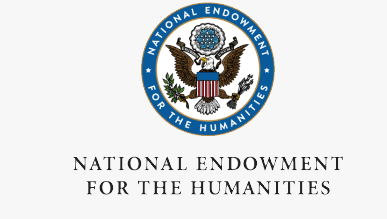
From online courses to complete degree programs, distance learning has become an increasingly common participant in higher education institution course offerings. The University of Puerto Rico in Bayamón (UPRB) supports the development of human potential and resources in the form of English language education. Concurrently, the increasing popularity of distance education has resulted in a metamorphosis of course offerings in higher education institutions. In an effort to meet student needs, the UPRB has included in its strategic plan the mission of increasing the number of courses offered online. This project was selected for funding by the National Endowment for the Humanities under the Spotligh grant.
The aim of this project is to ensure the quality of distance education and as a result increase student achievement and retention in the Humanities. Over the course of the 2023-2024 academic year, as part of the curricular development of online courses the project, A systematic approach to online course revision, combines English language instruction and online course offerings by piloting a systematic exploration of revision for the online course Effective Business Writing, Research & Reports (INCO 4009).
Of the English courses offered online, The Effective Business Writing, Research & Reports course is interdisciplinary, bringing together linguistics, writing composition, and professional skills development, making this a valued course in the institution. It was chosen to be the first course formally revised and validated by the review team because it is a required course for all Business Administration students and is available to students enrolled in other programs as an elective. In the past two years this course has been taken by 385 students. It was recently converted from a face-to-face course to an online course. The general objective of the course is for students to develop socio-humanistic and cultural knowledge that he/she will apply in his/her social and professional environment.
The content of the Effective Business Writing, Research & Reports course focuses on cognitive, interpersonal through written communication, and intercultural intelligence through language, all the while presenting professional skills. This is accomplished by analyzing and evaluating written texts, case studies, reports, and documents in American English. It is impossible to teach a language without teaching the culture (Fuller, 2009). As Humanists, we strive to support our students’ intellectual development and appreciation for other cultures as well as their own culture. Through the comparative and contrastive analysis of the English language and American culture to Spanish and Puerto Rican culture, students will develop a greater appreciation for cultural differences and professional practices. By developing both oral and written language skills, students improve their effective interaction with others both on the island and abroad.
Business Administration is the second largest department at the institution. It is currently being offered once a semester face-to-face and online, for a total of four sections per academic year. It impacts roughly one hundred students a year with the opportunity for multiple section offerings in the future. The course was initially created due to the pandemic but has continuously been offered online due to its demand from the student body. The online course provides students with the opportunity to accommodate their work and/or family schedules while continuing to pursue their career goals. Additionally, online classes allow 24 hours a day, 7 days a week, access to course materials which allows students to review the material multiple times, an added benefit for English language learners who through the use of videos, could watch, rewatch, and even slow the instruction speed for greater understanding, which can lead to higher achievement. Additionally, the course was created and launched in 2020; however, online course offerings are fairly new at UPRB, so a rigorous course revision plan has not yet been established by the institution.
“Courses should be viewed as living documents that will change and adapt with time and information”(McGahan, 2018; Wambeke, Barry & Bruhl, 2017). Successful courses, whether face- to-face or online, require a continuous, consistent process of revision (Baldwin, et al., 2018). This project is an initiative for the importance of revising the other online courses offered by the English Department and within the institution. It may also serve as a framework for the future creation of new online courses. One of the aims of this revision is to ensure that the quality of the course is as rigorous and beneficial to the students online as it is for the students who attend in person. The NEH Spotlight grant would allow for adequate time to explore and review this course in order to strengthen humanities teaching and learning in a virtual environment. An additional byproduct of the revision process may include opportunities to strengthen student, faculty, and institutional participation in online teaching and learning.
 Investigator: Jacelyn Smallwood Ramos (English)
Investigator: Jacelyn Smallwood Ramos (English)
